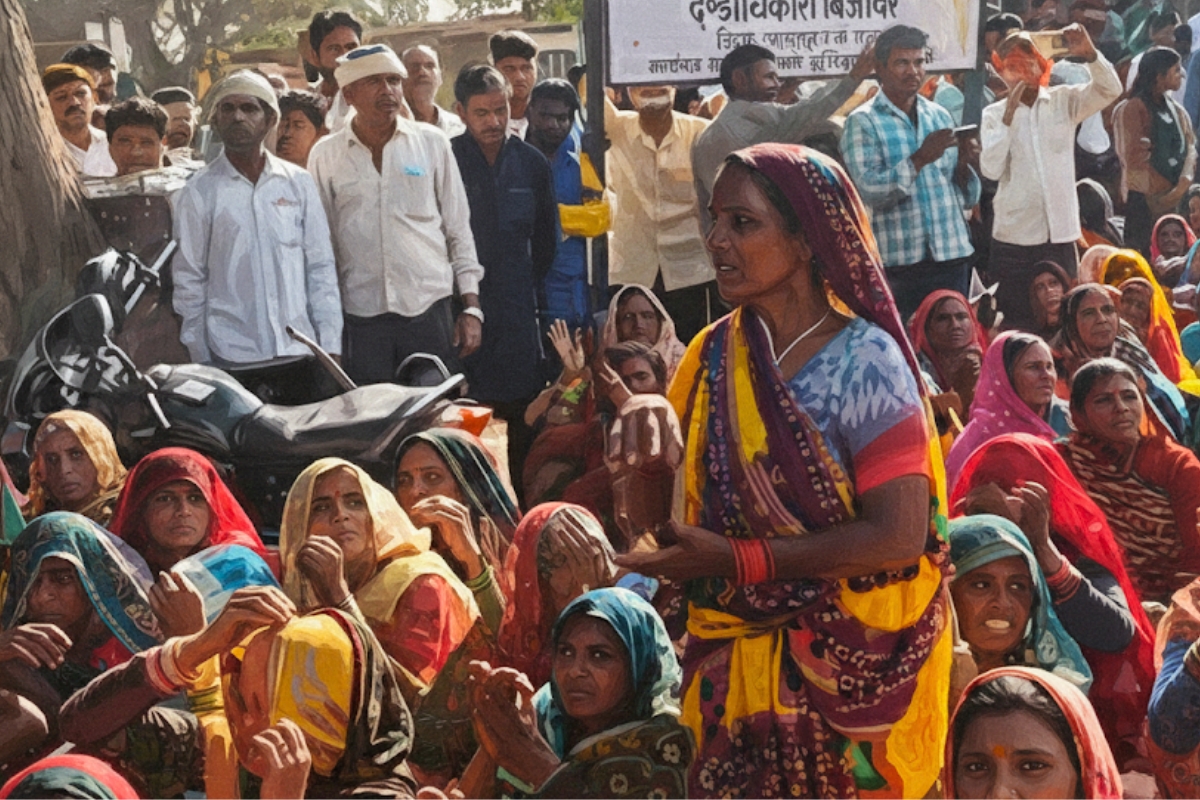Madhya Pradesh has earned the unfortunate title of India’s lightning capital, with 442 people dying from lightning strikes every year. This makes lightning more deadly than floods, heat strokes, and cold waves combined in the state.
The statistics are shocking. In 2022, while heat stroke killed 27 people and floods claimed 15 lives, lightning strikes killed 496 people in Madhya Pradesh. The India Meteorological Department recorded nearly one million lightning flashes in the state during 2022-23 – the highest in the country.
Despite having warning systems like SACHET, Nowcast, and the Damini app, deaths keep rising. The government sends weather alerts directly to people’s phones, but there’s a clear gap between technology and ground-level awareness.
A tragic story from Kothri village in Sehore district shows this gap. In September 2024, Aruna was cutting soybeans in her field when lightning struck on a clear, sunny day. The strike injured her leg, and nine months later, she still suffers from pain and numbness. The medical expenses came from her own pocket, and she can no longer work as a daily wage labourer, cutting off her main source of income. Despite her suffering, Aruna received no government financial aid.
The same lightning incident injured six other people and killed two, including 20-year-old Sonali Verma. Sonali’s uncle Sanjay recalls that there was no shelter anywhere near their workplace. He believes a temporary shelter could have saved lives by giving people a place to hide during the storm.
The state’s alert system faces serious challenges. Madhya Pradesh has only one weather radar but needs at least four to cover its vast area properly. Rural areas lack good mobile connectivity, many people don’t have smartphones, and digital literacy remains low.
Other states show improvement is possible. Odisha reduced lightning deaths by 31% by strengthening its alert system. Experts suggest building container shelters in outdoor areas where people can take refuge during lightning alerts.
However, lightning strikes aren’t officially recognised as natural disasters in India. Madhya Pradesh’s 184-page disaster management plan doesn’t mention lightning even once, highlighting the urgent need for policy changes.
Support us to keep independent environmental journalism alive in India.
MoreVideo Reports
Waste-to-energy program: India’s expensive policy failures
Tribal Homes Bulldozed in Kheoni Khurd Amid Heavy Rains
Stay connected with Ground Report for underreported environmental stories.
Follow us onX, Instagram, and Facebook; share your thoughts at greport2018@gmail.com; subscribe to our weekly newsletter for deep dives from the margins; join our WhatsApp community for real-time updates; and catch our video reports on YouTube.
Your support amplifies voices too often overlooked—thank you for being part of the movement.








